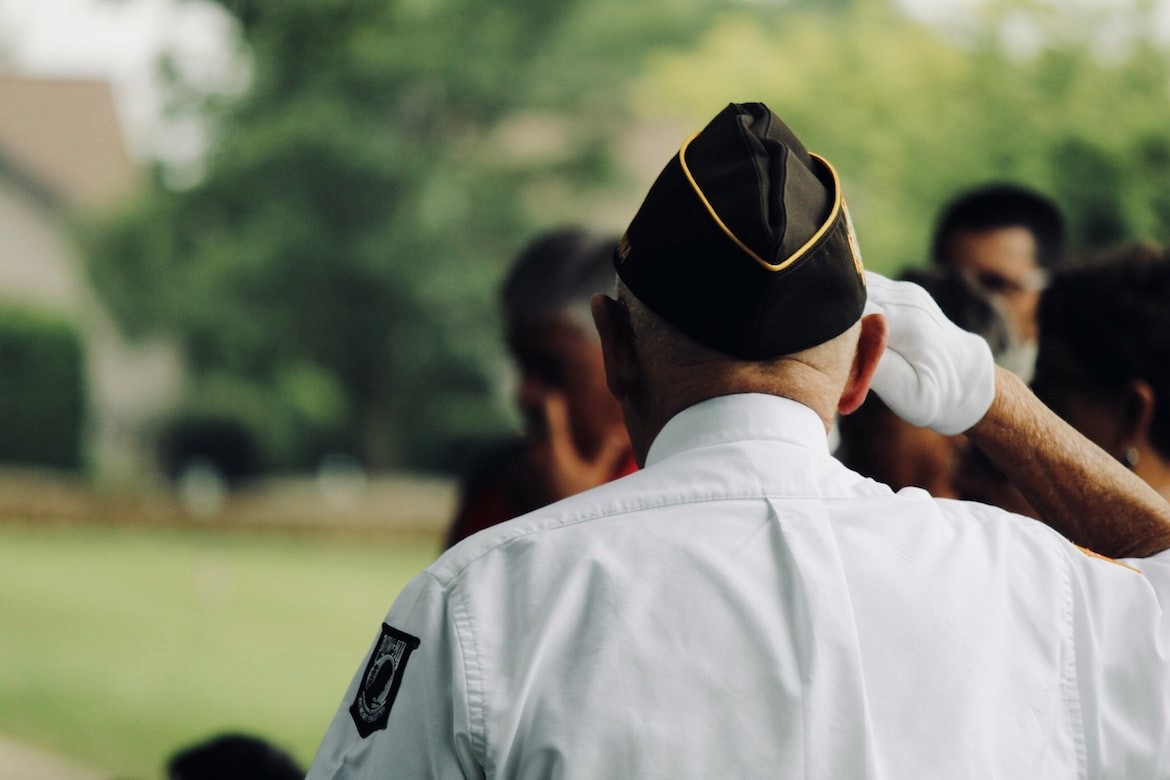photo-1529787730-bdcabd22a644 (1170×780) (unsplash.com)
Our veterans represent the epitome of sacrifice and bravery. Though they have dedicated their lives to securing the nation, the perils they face don’t end on the battlefield.
Instead, they persist, manifesting as various physical and mental health issues. This, in turn, causes them to struggle with reintegrating into civilian life.
The challenges veterans face post-service range from battling service-related medical issues to grappling with mental health problems. Similarly, the transition to civilian life often presents hurdles like homelessness and unemployment. In this article, let us explore these difficulties and understand how we, as a society, can extend a helping hand.
1. Battling Service-Related Medical Issues
Veterans often carry the burdens of war long after their service ends, with many battling chronic health conditions. Remember, over 5.5 million veterans have a service-related disability.
The traumatic recollections of combat, combined with bodily harm, often converge into a whirlwind of health complications that profoundly affect veterans’ daily lives. Often, these ailments stem from systemic failures rather than the direct consequences of war itself.
Moreover, not all health problems arise directly from battlefield experiences. For instance, the disaster at Camp Lejeune, which took place decades ago, serves as a grim reminder of the health perils that can result from negligent practices within military service environments.
According to TorHoerman Law, this refers to a water contamination incident that spanned over three decades. Countless Marines, staff, and family members were exposed to harmful chemicals. As a result, over one million people continue to suffer from serious health conditions such as cancer and more.
The Camp Lejeune lawsuit cases stemming from this catastrophe symbolize the grueling legal battles veterans and their families endure to seek justice and compensation. It further accentuates the systemic oversight that sometimes fails to protect our servicemen and women from hazards, even within their own bases.
2. The Struggle with Homelessness and Unemployment
Transitioning from a structured military life to civilian life can be disorienting for veterans, sometimes leading to homelessness. The struggle for stable housing and employment is a harsh reality that many veterans face post-service.
Today, there are 67,495 homeless veterans in the U.S. When compared to the total veteran population of over 18.5 million, that might seem small. However, even one homeless veteran is a grave injustice, considering the sacrifices they have made for the country.
Initiatives aimed at assisting veterans in securing housing and employment are crucial. Vocational training programs, housing assistance, and job placement services can all play a pivotal role in bridging the gap to stability. They ensure that veterans have a smooth transition into civilian life.
3. Dealing With Mental Health Challenges
The toll of warfare isn’t just physical. Mental health issues, including PTSD, depression, and anxiety, are rampant among veterans. The scars of battlefields often morph into lifelong mental health struggles, making their reintegration into civilian life exceedingly challenging.
In fact, the mental health challenges encountered by veterans are severe, leading to a 52% higher rate of suicide among them compared to non-veteran civilians. Creating robust support systems and promoting mental health awareness can significantly ameliorate the mental health struggles veterans face.
What Can the Public Do to Help?
When it comes to medical issues, there are a number of ways that the public can assist. People can establish or support local veteran gatherings, which are community-run projects. They offer a friendly and understanding environment where veterans and their families can meet.
Organizing such gatherings can often provide a path to professional help for those struggling with both physical and mental health issues.
Offering transportation can also be a big deal, considering many veterans cannot drive due to their disabilities. Lack of transportation is a far bigger barrier than many think when it comes to accessing healthcare services. This is even more so for veterans living in rural areas, where public transport is limited.
Homelessness is a little trickier to handle. That said, if you own a business or have influence over hiring decisions, consider employing veterans. Their military training often makes them disciplined, punctual, and excellent team players. You can also sponsor a veteran to attend vocational training programs or workshops that can help them acquire new skills or certifications necessary for civilian jobs.
Many veterans tend to be unaware of the great resources available to them. For instance, there are training programs run by VET TEC that provide specialized education in important fields like computer programming and information science. These can be great for providing highly valuable job opportunities.
Finally, mental health issues can be the most challenging to deal with. If you are directly interacting with veterans, it’s crucial to practice active listening, empathy, and understanding of their experiences and feelings. Ensuring that they feel heard and validated can be a significant step towards aiding their mental health.
Essentially, you want to encourage veterans to seek professional mental health care when necessary. Offer to help them find a therapist or support group, or even accompany them to appointments if they are comfortable with it.
Conclusion
The next time you have the opportunity to help a veteran, remember that every act of kindness matters. Whether it’s through setting up local gatherings, offering a ride to a medical appointment, or simply lending an ear, it all matters. Our efforts can stitch together a safety net that catches those who once fought to protect us.
Remember that veterans are among us, carrying the invisible weight of their service. Let’s not forget that we hold the power to lighten that load. Every bit of assistance matters more than you may think. You never know when reaching out can help a veteran get out of a crisis state.
